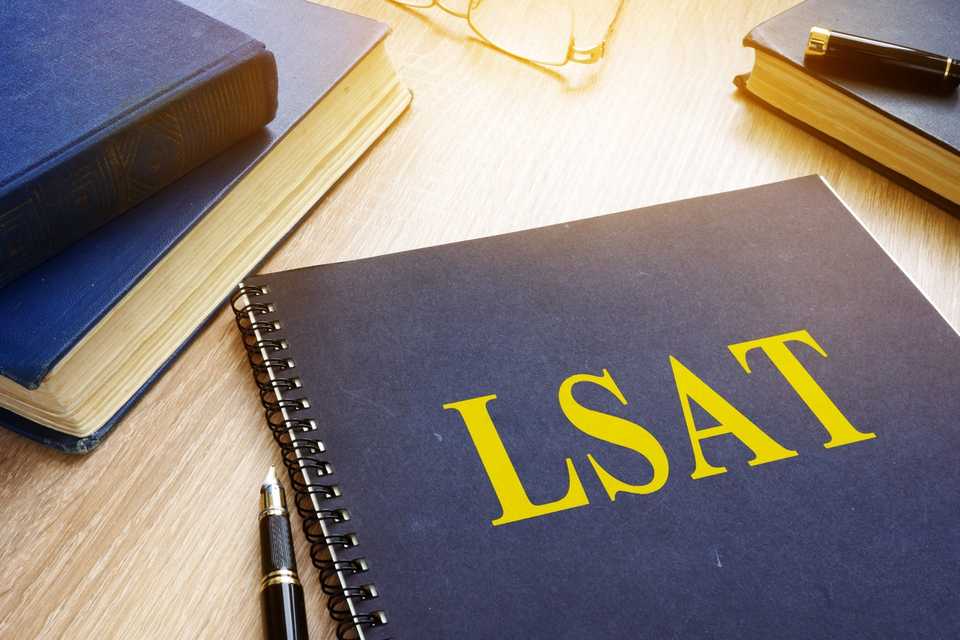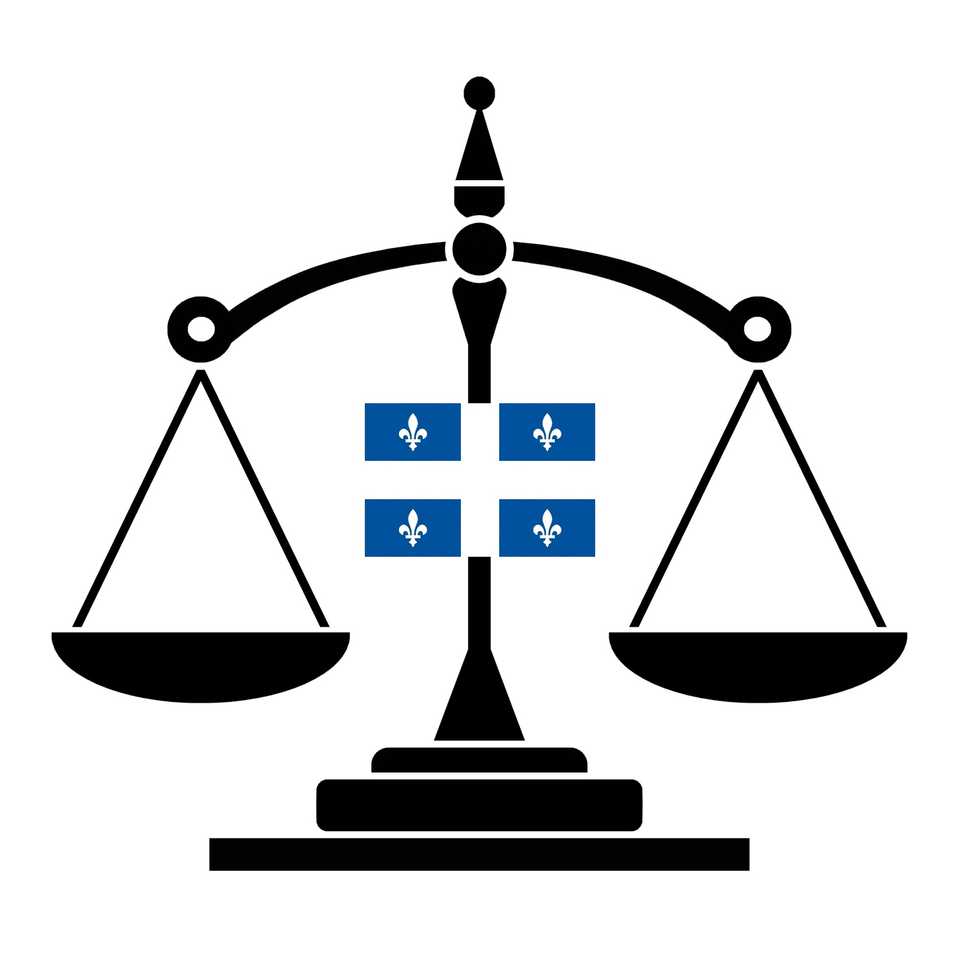Are you wondering how to become a lawyer in Canada? The path to this profession is demanding and the conditions vary from province to province.
From admission to law school to officially becoming a lawyer, several steps must be taken, depending on the province. However, in general, the process and conditions are quite similar in all provinces.

| JuriGo offers you a general overview of the process of becoming a lawyer in Canada! |
|---|
Step 1: High School Diploma
The journey to becoming a lawyer in Canada begins with completing secondary education. Like many other professional careers, obtaining a high school diploma is the essential first step!
Step 2: Completing an Undergraduate Degree
After finishing high school, aspiring lawyers in Canada must pursue an undergraduate degree. While law schools do not mandate a specific field of study, they typically require applicants to have completed at least three years of undergraduate education. Completing a full four-year bachelor's degree is often advantageous, as most successful applicants have done so.
Canadian law schools do not prescribe a particular major for undergraduate studies. Common choices include:
- English
- Political Science
- Philosophy
- Communication Studies
- Sociology
These disciplines help develop critical skills such as writing, communication, critical thinking, and research. However, any field of study that hones analytical and communication abilities is also recommended.
Foreign Qualifications
For applicants with foreign bachelor's degrees, eligibility for Canadian law schools depends on the recognition of the institution and curriculum by the specific law school. It's essential to verify with each law school regarding the acceptance of international qualifications.
Educational Path in Quebec
In Quebec, the educational path differs slightly. Students typically complete a two-year or three-year pre-university program at CEGEP (Collège d'enseignement général et professionnel) after high school. CEGEP is not a university. It is worth mentioning that university students can also apply to law schools in Quebec.
Maintaining a Strong Academic Record
It's important to note that while law schools do not require specific undergraduate courses, maintaining a strong academic record is crucial. Admission is competitive, and factors such as Grade Point Average (GPA), Law School Admission Test (LSAT) scores, Cote-R (for Quebec), letters of recommendation, and personal statements are considered!
Step 3: Completing the LSAT
The third step in becoming a lawyer in Canada is taking the Law School Admission Test (LSAT). This standardized test is a crucial part of the law school application process for most Canadian law schools, although it is not required for law programs in Quebec.

The LSAT is designed to assess key skills such as logical reasoning, reading comprehension, and analytical thinking, which are vital for success in law school. It does not require prior legal knowledge or expertise in any specific field of study.
Structure of the LSAT
The LSAT consists of two main components:
- Multiple-choice questions
- A writing sample
The multiple-choice section includes four parts, with three sections contributing to the final score. These sections assess reading comprehension, logical reasoning, and analytical reasoning. The fourth section, which is unscored, is used to test new questions for future exams.
The writing sample requires candidates to take a stance on a given issue and defend their position, demonstrating their ability to communicate persuasively.
When to Take the LSAT ?
It is recommended to take the LSAT during the summer of the third year of undergraduate studies for those planning to apply to law school in the fall. Proper preparation is essential, and many candidates choose to practise using timed simulations.
Retaking the LSAT :
Applicants are allowed to retake the LSAT up to three times within a single year, five times over a five-year period, and a total of seven times throughout their lifetime.
| What is the LSAT score range required for law school admission?First, it's important to note that LSAT scores range from 120 to 180, with 120 being the lowest possible score and 180 being the highest.While most law schools do not set a specific minimum LSAT score, some may provide the average score of their successful applicants. A strong LSAT score can significantly enhance an application. For example, the most recent graduating class at the University of Toronto obtained an average score of 167 on the LSAT. Similarly, the University of Ottawa reports that most successful applicants obtained a score of at least 158. |
|---|
Step 4: Completing a Law Degree
The fourth step to becoming a lawyer in Canada involves obtaining a law degree from an accredited institution. Prospective lawyers can pursue this education either domestically or internationally, provided the program aligns with Canadian legal standards.
Canadian Law Degrees
In Canada, the standard law degree is the Juris Doctor (JD), a graduate program typically spanning three years.
Admission to JD programs generally requires the completion of an undergraduate degree, a competitive Grade Point Average (GPA), strong LSAT scores, and other supporting materials such as reference letters, personal statements, and interviews.

Notably, law schools in Quebec offer civil law programs, leading to a Bachelor of Civil Law (BCL) degree. These programs differ from the common law curriculum followed in other provinces.
Understanding this distinction is crucial for those considering practising law either outside of Quebec or within the province itself.
Here’s a table of Canadian universities that offer law programs, organized by province:
| Province | University |
|---|---|
| Alberta | University of AlbertaUniversity of Calgary |
| British Columbia | University of British ColumbiaUniversity of VictoriaThompson Rivers University |
| Manitoba | University of Manitoba |
| New Brunswick | University of New BrunswickUniversité de Moncton |
| Nova Scotia | Dalhousie University |
| Ontario | Lakehead UniversityQueen's UniversityToronto Metropolitan UniversityUniversity of OttawaUniversity of TorontoUniversity of WindsorYork UniversityWestern University |
| Prince Edward Island | No law schools available |
| Quebec | McGill UniversityUniversité LavalUniversité de MontréalUniversité de SherbrookeUniversité du Québec à MontréalUniversité du Québec en Outaouais |
| Saskatchewan | University of Saskatchewan |
International Law Degrees
For international students or those seeking legal education abroad, degrees from recognized common law jurisdictions, such as the United States or the United Kingdom, may be acceptable.

However, graduates from these programs must obtain a Certificate of Qualification from the National Committee on Accreditation (NCA) of the Federation of Law Societies of Canada. This certification ensures that foreign credentials meet Canadian legal education standards.
Financial Considerations
Pursuing a law degree represents a significant financial investment. Tuition fees and associated costs can be substantial, making it important for students to plan their finances accordingly. Financial aid, scholarships, and loan options may be available to assist with funding.
Completing a law degree is a key step in becoming a lawyer in Canada. Aspiring students should take the time to explore different programs, understand the admission requirements, and weigh the financial costs to make well-informed decisions about their legal education.
Step 5 : Law Society Exams, Bar Exam, and Articling
After completing law school in Canada, the path to becoming a lawyer varies depending on the province or territory where you plan to practise.
| **Important to Note :**While all provinces require law graduates to pass licensing exams and complete a period of supervised training, the order and specific requirements differ. Some provinces mandate passing the bar exam before articling, while others require candidates to complete their articling period first. |
|---|
Law Society Exams / Bar Exam
Law society exams, commonly referred to as bar exams, evaluate a candidate’s legal knowledge and readiness to practise law. While all provinces require these assessments, the structure, timing, and content of the exams vary. Some jurisdictions mandate passing the bar exam before articling, while others allow candidates to complete their practical training first.
Ontario: Dual Licensing Exams
In Ontario, candidates must pass two separate licensing exams before they can be admitted to the bar:
- Barrister Licensing Examination : Covers litigation, criminal law, family law, and practice management.
- Solicitor Licensing Examination : Focuses on real estate, business law, ethics, wills, and estates.
Both exams assess theoretical knowledge and its application in legal practice.

British Columbia: Training and Practical Experience
British Columbia integrates training and assessment through the Professional Legal Training Course (PLTC), which includes two bar exams:
- Barrister Assessment : Tests proficiency in criminal and civil procedure.
- Solicitor Assessment : Covers real estate, business law, and contract law.
Alberta and Manitoba: Practice Readiness Education Program
Alberta and Manitoba use the Practice Readiness Education Program (PREP) as their licensing pathway, combining bar admission with hands-on legal training to ensure law graduates are fully prepared for practice.
The components of PREP vary depending on whether the candidate is in Alberta or Manitoba but may include the following elements:
- A jurisprudence exam to assess legal knowledge.
- Chart audits to evaluate case management and documentation skills.
- Scored interviews with both the candidate and their supervisor(s) to assess performance and development.
It places a strong emphasis on:
- Professional responsibility, ensuring candidates understand ethical and legal duties.
- The development of essential legal skills, providing practical experience through real legal work under mentorship.
Throughout the program, candidates receive continuous feedback and evaluations, ensuring they meet the necessary standards. Additionally, candidates are encouraged to reflect on their experiences, fostering a commitment to lifelong learning and professional development, ensuring they are well equipped to enter legal practice with confidence.
Quebec
Quebec follows a unique process for becoming a lawyer due to its civil law system, which differs from the common law systems used in other provinces.
Aspiring lawyers in Quebec must first complete a bachelor’s degree in civil law (LL.B.) from a recognized university. After obtaining their degree, they must enroll at the École du Barreau du Québec.

The training program at the École du Barreau du Québec, which is currently undergoing reforms, typically lasts between four and eight months. During this period, candidates undergo intensive legal training and must pass three mandatory exams.
Articling
Articling is a mandatory step in becoming a lawyer. It involves a period of supervised work experience where candidates practise law under the mentorship of a qualified lawyer.
| The length of articling typically ranges from nine to twelve months in most provinces. However, in Quebec, candidates are required to complete a six-month articling period. |
|---|
This hands-on experience enables candidates to apply the theoretical knowledge gained during law school to real-world legal practice. During this time, candidates work in law firms or legal departments, conducting research, drafting legal documents, and assisting with client cases.
Finding an Articling Position
Finding an articling position can be competitive, as most law graduates are responsible for securing their own placements. This may involve applying directly to law firms or using job boards provided by provincial law societies. The process allows graduates to select placements that align with their specific areas of legal interest.
Ontario's Alternative: The Law Practice Program (LPP)
Ontario offers an alternative to traditional articling : the Law Practice Program (LPP). This program is designed for graduates who are unable to secure an articling position.
The LPP consists of:
- Four months of intensive legal training that simulates real-world practice.
- A four-month placement in a legal setting.
The LPP provides an alternative route to qualification, ensuring that all law graduates have access to practical legal training.
In short, becoming a lawyer in Canada involves completing law school, passing licensing exams, and gaining practical experience. The process varies by province, with different requirements for exams and articling. Aspiring lawyers must review their province’s specific path to licensure to ensure they follow the correct steps and successfully navigate their legal career.
Final Step: Called to the Bar
After successfully completing the required exams and articling, the final step to becoming a lawyer in Canada is for the candidate to apply for admission to the bar in their province or territory. Once accepted, the individual is officially called to the bar, granting them the authority to practice law.
This process includes attending a formal bar call ceremony, during which the candidate may take an oath and receive a certificate of qualification. The ceremony varies by province but serves as the official recognition of the individual's status as a licensed lawyer, enabling them to begin their legal career.
| Make Sure to Check Provincial Requirements!It's important to remember that while the steps outlined are a general guide for becoming a lawyer in Canada, each province and territory may have its own unique requirements. To ensure you're on the right track, it's essential to check with the bar association of the province or territory where you plan to study and practise. While the path up until law school graduation is almost the same across Canada, the specific steps that follow vary depending on where you intend to practise! |
|---|
How Long Does It Take to Become a Lawyer in Canada?
Becoming a lawyer in Canada generally takes a minimum of six to seven years of post-secondary education, depending on the province:
- Undergraduate Degree: Complete at least two or three years of undergraduate study.
- Law School: Enroll in law school to obtain a Juris Doctor (JD) or Bachelor of Civil Law (LLB) degree, which typically takes three years.
- Bar Exam / Law Society Exams: In several provinces, candidates must pass bar exams, law society exams, or complete specific training programs, which may take place either before or after their articling period and typically span a few months.
- Articling: After earning your law degree, you must complete a period of articling (practical legal training) under the supervision of a qualified lawyer. The duration of articling varies by province:
- Common Law Provinces: Typically lasts between nine and twelve months.
- Quebec: Requires a six-month articling period.

JuriGo: Your direct connection to specialized lawyers!
JuriGo simplifies the process of connecting clients with experienced lawyers, making legal assistance accessible and hassle-free. Our platform is designed to provide you with fast and personalized legal advice, tailored to your specific needs.
Whether you are looking for expertise in family law, criminal defence or any other legal field, JuriGo offers a simple and free solution.
Simply fill in our form and we will quickly put you in touch with a qualified lawyer near you to guide you through your legal journey!
